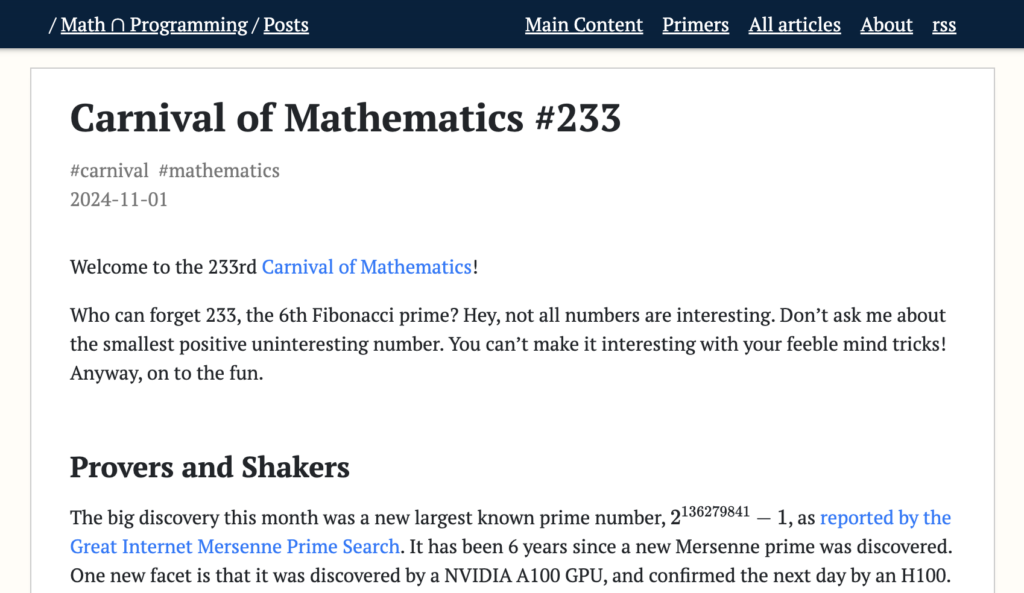Double Maths First Thing is like a diet MathsJam, some of the flavour but only a hint of the joy.
Hello! My name is Colin and I am a mathematician on a mission to spread delight in my beloved subject.
I spent the weekend at Big MathsJam in Staffordshire and gorged myself full of puzzles, surprises and fascination — my personal highlights were Mats Vermeeren’s talk about why the start lines on athletics tracks are curved the way they are, Vincent van Pelt’s MathsJam Jam song (Mnemonic to the tune of Blondie’s Atomic) and the colouring-in in the quiet room. Now I’m sad that I don’t get to do it for another year.
From around the internet
It’s always cool to see ancient technology in action. Slide rules may not be ancient ancient, but they were no longer in common use by the time I was at school. (I remember we had some Napier’s bones, but nobody knew how to use them. I wish they had, I’d have lapped it up.)
As everyone knows, the Mathematical Villain goes through your spreadsheets turning data into dates. Here are some more times that Excel users failed to, well, excel. (Aside: it’s all so avoidable! A halfway-competent programmer can set up a script that checks for this sort of thing. And if you need one of those, you should let me know.)
In “everything is interesting if you look at it closely enough” news, the horrors of implementing daylight saving rules around the world are fascinating.
I also loved this bit of code golf for finding Fibonacci numbers. The explanation is much more interesting than the code.
I couldn’t explain why, but I’m averse to calculator notebooks. Not my cup of tea. Don’t like Jupyter. I may have had a bad experience with Maple as a student. That doesn’t mean you can’t experiment and enjoy, though!
Lastly, to file under “ridiculous but brilliant projects”, several generators of the Finite Group are challenging humankind to say the new record Mersenne Prime before the next one is discovered. Join the race!
Books!
Apparently some people celebrate Actual Christmas rather than (or as well as!) MathsJam. That’s OK, all are welcome. If you’re looking for maths-related books to buy someone so they can add them to the unread pile on the floor, here is a selection of books I’ve either read and enjoyed or have had recommended to me:
- Alex Bellos’s Think Twice
- Rob Eastaway’s Much Ado About Numbers
- Pippa Goldschmidt’s Schrödinger’s Wife
- Matt Parker’s Love Triangle
- Ernő Rubik’s Cubed
- Olivia Waite’s The Lady’s Guide To Celestial Mechanics
(Note: these links don’t necessarily go to the cheapest place to order from. I recommend asking your local independent bookshop — if you don’t have one of those, Gulliver’s in Wimborne deliver across the UK and are lovely people too.)
In the meantime, if you have friends and/or colleagues who would enjoy Double Maths First Thing, do send them the link to sign up — they’ll be very welcome here.
If you’ve missed the previous issues of DMFT or — somehow — this one, you can find the archive courtesy of my dear friends at the Aperiodical.
That’s all for this week! If there’s something I should know about, you can find me on Mathstodon as @icecolbeveridge, or at my personal website. You can also just reply to this email if there’s something I should be aware of.
Until next time,
C

